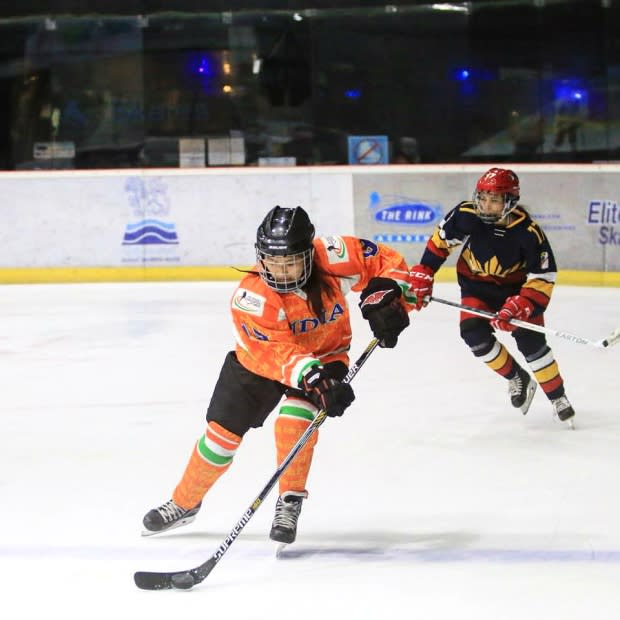From frozen ponds and second-hand gear, India women's hockey team has come a long way to compete in Canada
India is not known for its ice hockey players but that hasn't stopped women like 22-year-old Diskit Angmo from forming a team and competing internationally.
Angmo and the rest the India women's national ice hockey team are in Vancouver this week to play an exhibition game against the Surrey Falcons before heading to Calgary.
"It's like a dream come true," Angmo told Stephen Quinn, the host of CBC's The Early Edition.
"We'd never thought that we would come to Canada as ice hockey players."
Breaking into the sport was no easy task, particularly as women.
There has been a national men's team in India since 1989, but the women's team only played its first game in 2016.
"Being a woman, it's always a challenge," Angmo said, who started skating at age 12.
"Most of the girls [on the team] didn't even know that women play hockey. We [thought we] were just limited to speed skating or figure skating."

'It's improved now'
In her first international competition, Angmo suffered a serious injury that she says was partly due to a lack of coaching and experience.
She broke her leg in the second match at a game in China.
"It was my fault, but, at the same time, we didn't have anyone to tell about how to properly tighten up our skates and things like that," she said.
"It was very disheartening for me."
Beyond societal expectations, infrastructure and equipment was a challenge for the team.
The team members are mainly Ladakh, a cold and arid mountainous region of northern India, where they would practice hockey on frozen ponds with second-hand equipment from the men's team.
"It's improved now and we have got equipment of our own," Angmo said.
Some of the team's new equipment was donated by Hayley Wickenheiser, a Canadian ice hockey player and former Olympian, who's also hosting the Wickenheiser World Female Hockey Festival in Calgary this month that the team is attending.
"We really feel lucky," Angmo said. "Countries like Canada, they are looking up to us and taking the initiative to let us know about this sport that is not encouraged in our own country."
With files from The Early Edition.

